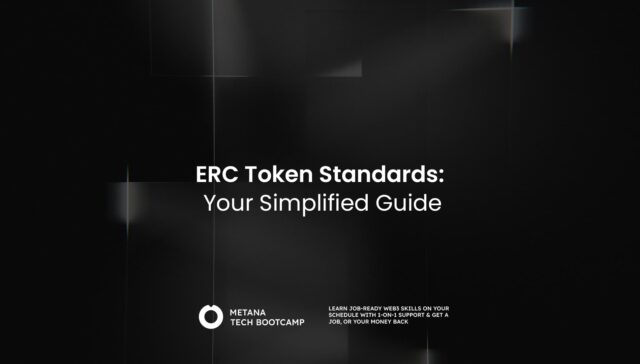TL;DR
- Smart contract audits protect user funds and prevent costly DeFi hacks.
- Audited projects attract more investors and ensure regulatory readiness.
- Common DeFi attacks include reentrancy, flash loan exploits, and logic errors.
- Top auditing firms like CertiK and OpenZeppelin enhance DeFi security.
- Despite audits, ongoing security measures are necessary for long-term protection.
Decentralized Finance (DeFi) relies on smart contracts to enable secure, trustless financial transactions. However, vulnerabilities in smart contracts can lead to devastating hacks, financial losses, and a loss of user trust. Smart Contract Auditing for DeFi: Why It’s Crucial highlights the importance of auditing to protect user funds and ensure the long-term success of DeFi projects.
Smart contract audits identify security flaws, logic errors, and potential exploits before they are exploited by malicious actors. In this article, we’ll explore why auditing is essential, how it works, and its role in maintaining investor confidence and regulatory compliance.
Understanding Smart Contracts in DeFi
Smart contracts are self-executing agreements on the blockchain that automatically process financial transactions without the need for intermediaries. These contracts are widely utilized in various DeFi platforms such as Uniswap, Aave, MakerDAO, and Compound, where they enable lending, trading, and staking functionalities. However, once deployed, smart contracts become immutable, meaning that any vulnerabilities or flaws in their code cannot be easily fixed. This makes security audits an essential step before launching a DeFi project to prevent potential risks and financial losses.
Why Smart Contract Auditing is Crucial for DeFi
Smart contract auditing plays a vital role in protecting user funds, as DeFi users entrust billions of dollars in these automated agreements. Without proper audits, vulnerabilities in smart contracts can lead to devastating exploits, hacks, and significant financial losses. Additionally, security audits help build investor confidence, as well-audited projects attract more investors and liquidity providers, thereby enhancing the credibility of the DeFi ecosystem.
Another key benefit of smart contract auditing is its role in preventing common attacks such as reentrancy exploits, flash loan attacks, logic errors, and front-running vulnerabilities. By identifying and mitigating these risks, audits strengthen the overall security of DeFi protocols. Furthermore, with governments tightening regulations around blockchain-based finance, undergoing smart contract audits provides projects with a strategic advantage in meeting compliance requirements, ensuring long-term sustainability and adoption.
Examples of Major DeFi Exploits:
- The DAO Hack (2016): $60M lost due to a reentrancy attack.
- Poly Network Hack (2021): $600M stolen due to cross-chain smart contract vulnerabilities.
- Ronin Bridge Exploit (2022): $625M drained from Axie Infinity’s network.
How Smart Contract Auditing Works
Smart Contract Auditing for DeFi: Why It’s Crucial involves multiple steps to ensure the integrity and security of blockchain-based financial protocols.

The first step in an audit is manual code review, where security experts meticulously analyze each line of the smart contract to detect vulnerabilities. Following this, automated auditing tools like MythX, Slither, and CertiK’s Skynet perform in-depth scans for common security flaws.
Auditing firms also use formal verification, a mathematical approach that proves a contract’s logic is correct under all conditions. Additionally, fuzz testing and static analysis are conducted to simulate multiple attack scenarios, testing the robustness of smart contracts before they go live.
Benefits and Challenges of Smart Contract Auditing
| Benefits | Challenges |
|---|---|
| Prevention of Exploits & Hacks: Reduces risks before deployment. Long-term Security & Scalability: Ensures smart contracts can withstand future DeFi expansion. | High Cost of Auditing: Quality audits can cost tens of thousands of dollars, limiting accessibility for smaller projects. |
| Investor & User Trust: A well-audited contract enhances confidence in the project. | No Guarantee of 100% Security: Even the best audits cannot eliminate all risks, as new vulnerabilities may emerge. |
| Regulatory Readiness: Prepares projects for potential legal requirements. | Slows Down Development: Thorough audits take time, which can delay project launches in fast-moving DeFi markets. |
The Role of Auditing in DeFi Regulations
Smart Contract Auditing for DeFi: Why It’s Crucial extends beyond just security; it plays a vital role in ensuring DeFi projects remain compliant with evolving regulatory standards.
As DeFi gains mainstream adoption, regulatory bodies are increasing scrutiny on blockchain-based financial services. A comprehensive audit provides proof of security that can help projects navigate compliance requirements and reassure investors. Institutional investors, in particular, prefer audited projects due to their adherence to security best practices.
Future Trends in Smart Contract Auditing
- AI & Automation in Audits: Machine learning will enhance automated security checks.
- Community Audits & Bug Bounties: DeFi projects are increasingly leveraging public security researchers for ongoing audits.
- DeFi Insurance & Risk Assessment: Insurance products for smart contract failures will become more common.
Conclusion
Smart Contract Auditing for DeFi: Why It’s Crucial is more than just a security practice—it’s a necessity in today’s decentralized financial landscape.
By ensuring the protection of user funds, building investor confidence, and supporting regulatory compliance, audits play a crucial role in securing the future of DeFi. Developers must prioritize audits before deployment, while investors should only trust projects with verified security measures. With continued advancements in auditing techniques and tools, the DeFi ecosystem can evolve into a more secure and resilient financial system.
FAQs
What is smart contract auditing, and why is it important for DeFi?
- Smart contract auditing is a security process that detects vulnerabilities before deployment, ensuring DeFi platforms remain safe from hacks and exploits.
What are the most common vulnerabilities found in DeFi smart contracts?
- Some common vulnerabilities include reentrancy attacks, flash loan exploits, front-running risks, and logic errors that can lead to massive financial losses.
How do DeFi projects get their smart contracts audited?
- Projects typically hire professional auditing firms like CertiK, OpenZeppelin, or Trail of Bits, which review the code, run tests, and provide a security report.
Can a smart contract audit guarantee 100% security?
- No, audits significantly reduce risk but cannot eliminate all vulnerabilities, as new attack methods may emerge over time.
How do audits help with DeFi regulations?
- Smart contract audits ensure compliance with security best practices, making projects more attractive to institutional investors and future regulatory frameworks.







